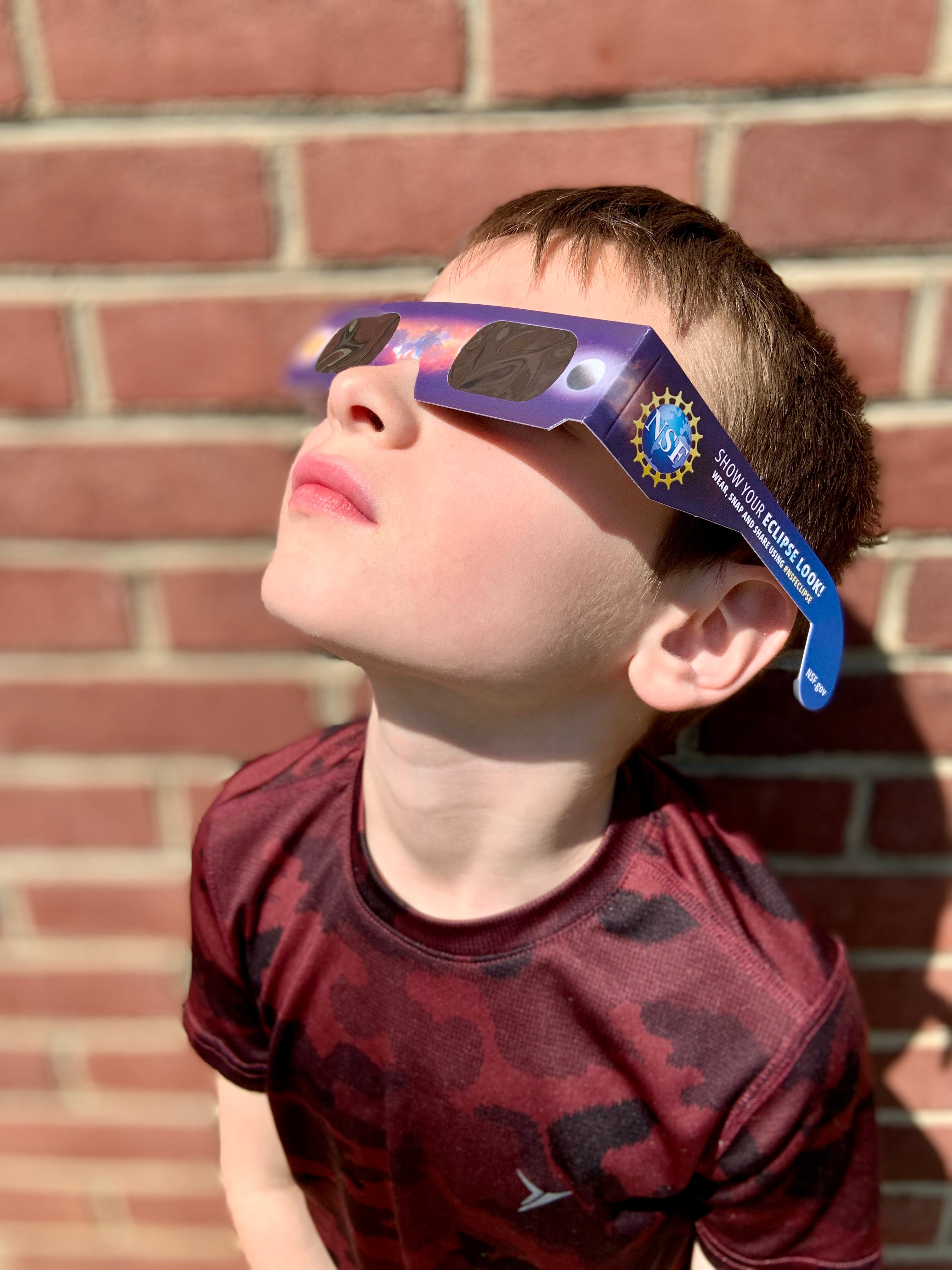 Caption: Seven-year-old Alex Jackson, from Latrobe, PA, dons a pair of solar eclipse glasses in anticipation of the April 8th event. He’s hoping for clear skies.
Caption: Seven-year-old Alex Jackson, from Latrobe, PA, dons a pair of solar eclipse glasses in anticipation of the April 8th event. He’s hoping for clear skies.
As excitement builds for the upcoming solar eclipse, teachers and students at local schools in the Jeannette, Greensburg, and Latrobe area are gearing up for a unique educational experience—with the help of Olivia Long, PhD, associate professor of biochemistry at the University of Pittsburgh at Greensburg, and the U.S. National Science Foundation (NSF).
Long, who is currently on detail at the NSF, facilitated the distribution of free solar eclipse glasses to more than 3,000 K-12 students in Westmoreland and Cambria Counties. Her goals were to ensure that these school districts had the proper solar eclipse glasses with which to safely view this natural phenomenon—and to ignite the students’ interest in space and science.
“This initiative allows local students to safely view the solar eclipse—a once-in-a-generation event,” said Long. "The solar eclipse presents a rare and exciting science event that can inspire students to learn more about space and STEM, in general. “It is exciting that so many teachers, youth programs, and schools have taken advantage of this opportunity.”
Pitt-Greensburg faculty and alumni have been working with Long to help distribute the eclipse glasses to area schools.
Todd Brown, PhD, associate professor of physics at Pitt-Greensburg and a member of the American Association of Physics Teachers’ Committee for Space Science and Astronomy, has been preparing the Pitt-Greensburg community for months about the upcoming solar eclipse.
He notes that throughout history, solar eclipses have served as profound moments of scientific discovery and cultural significance. From Janssen's discovery of helium during a mid-1800s eclipse to Einstein's validation of his Theory of Relativity in 1919, eclipses have continually pushed the boundaries of our understanding of the cosmos. The anecdotal tales surrounding eclipses, like the supposed end of the Battle of Halys in 585 BCE, highlight their impact on human history and the curiosity they inspire.
“Witnessing a total solar eclipse is a transformative experience, often leaving observers in awe and anticipation for the next occurrence,” explained Brown. “Eclipses remind us of the grandeur of the universe and the enduring allure of exploration.”
The distribution of eclipse glasses is part of coordinated efforts between NSF and agency partners NOAA and NASA, underscoring the importance of public engagement in scientific phenomena.
By providing free solar eclipse glasses to local schools, this initiative hopes to inspire the next generation of scientists, fostering curiosity and passion for discovery among young learners. More information about the eclipse can be found https://new.nsf.gov/events/solar-eclipse-2024.